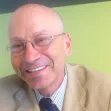World
Global issues, U.N., etc.
Is Space Elevator Ready for Liftoff?
Alex Goldmark reports on the new NASA-inspired space elevator design that is primed for testing and could make it possible for billionaires to step foot on the moon sooner than later.
Cities Get Proactive About Citizen Gripes
Ever wish it didn't take 4 calls, 2 letters, and 1 community meeting to get a pothole fixed in your city? A new software developed by IBM would allow cities to mine social media to get a picture of public sentiment, long before you dial 3-1-1.
How Does Placemaking Pay?
Hazel Borys compiles an extraordinary list of studies quantifying the role of livable, walkable places in building equity, city coffers, health, and social capital.
Why Can't Urban Designers and Transit Planners Just Get Along?
Reflecting on his experiences at CNU's recent Transportation Summit, Jarrett Walker examines "the mutual incomprehension that plagues the relationship between urban designers and transit planners."
Why Public Spaces Are Crucial for 'the Future of the Human Race'
Jay Walljasper chronicles the decline of lively public spaces in the era of "rampant traffic, proliferating privatization, heightened security...and the internet," and human kind's existential need for protecting and expanding the public realm.
Formulating a New Metric for Walkability
Going beyond the analytical parameters of the popular Walk Score website, a new site aims to broaden the scope of analysis to include more qualitative information, such as safety and streetscape, in determining which areas are pedestrian friendly.
Steer Clear of the 5 Most Dangerous Roads in the World
Writing for Yahoo! Travel, Aefa Mulholland identifies five of the most dangerous roads in the world - from India's chaotic city streets to Bolivia's mountain hugging back roads.
The Many Benefits of 'Multiblock Underground Shared Parking'
The urban parking garage gets an overhaul with the innovation of multiblock parking. By constructing underneath multiple blocks, developers and cities can improve parking efficiencies and lower costs.
The (Slow) Rise of Wireless Technology
The technology is there, and has been for a decade. Still, Wi-Fi's roll-out into our homes has been slow, at best, and continues to be confronted by various challenges.
Friday Funny: When Green Technology Backfires
The humor site Cracked takes a look at what happens when green technology backfires: melting houses, blinded jet pilots and buildings drowning in urine.
Google Pulls Back the Curtain on its Secretive Maps Program
Alexis C. Madrigal get exclusive access to "Ground Truth," Google's project to develop the most accurate maps in the world. But why is the master of the virtual world so intent on documenting the physical world?
A Guide to Great Streets
Using examples of exceptional streets from diverse settings across the world, Kaid Benfield tries to tease out what makes a great city street.
New Tool Seeks to Measure the Benefits of Urbanization
A new city prosperity index has been unveiled by UN-Habitat at this week's World Urban Forum. The index seeks to catalog the ways in which global urbanization can encourage shared prosperity and human development, reports Claire Provost.
Decoding the Geography of Innovation
More often than not, innovation springs from social interaction, rather than the romantic notion of the genius in isolation. With this in mind, Jessica Stoller-Conrad and Nancy Shute discuss three important ways in which geography fuels innovation.
What Defines a City?
As anyone who's raised an eyebrow upon hearing that Los Angeles is technically more dense than New York can attest, making city-to-city comparisons can be a confounding endeavor. Nate Berg goes in search of a uniform way to define the city.
Global Warming's Contradictory Role in Decreasing Biodiversity
Despite the seemingly positive news outlined in a new report detailing the role global warming periods play in increasing biodiversity, today's extremely-rapid warming trajectory may cancel out any hope of that.
Escaping the Pitfalls of Professional Discourse
Kaid Benfield returns to his popular blog at the NRDC's Switchboard site after a three-week hiatus, with thoughts on the purpose of his writings and how "overly familiar vocabulary can lead to overly familiar thinking."
Public Spaces Provide Path to Improving Life in Global Slums
The Project for Public Spaces (PPS), who have been working with UN-HABITAT on sustainable urbanization, describe why establishing public spaces can be even more important to improving the world's slums than providing power or clean water.
Creative Class Cannibalization
Richey Piiparinen discusses the "Frankenstein effects" of place-making, in which, he argues, the diversity of people and place that attracts the creative class is eventually forced out by those in search of the "highest and best use."
Why Drawing Matters to Design in the Digital Age
Architect Michael Graves pens an opinion piece for The New York Times that explores the effect that computers are having on the architectural creative process. Does the decline in hand drawing result in a diminished ability for speculation?
Pagination
Urban Design for Planners 1: Software Tools
This six-course series explores essential urban design concepts using open source software and equips planners with the tools they need to participate fully in the urban design process.
Planning for Universal Design
Learn the tools for implementing Universal Design in planning regulations.
EMC Planning Group, Inc.
Planetizen
Planetizen
Mpact (formerly Rail~Volution)
Great Falls Development Authority, Inc.
HUDs Office of Policy Development and Research
NYU Wagner Graduate School of Public Service


































